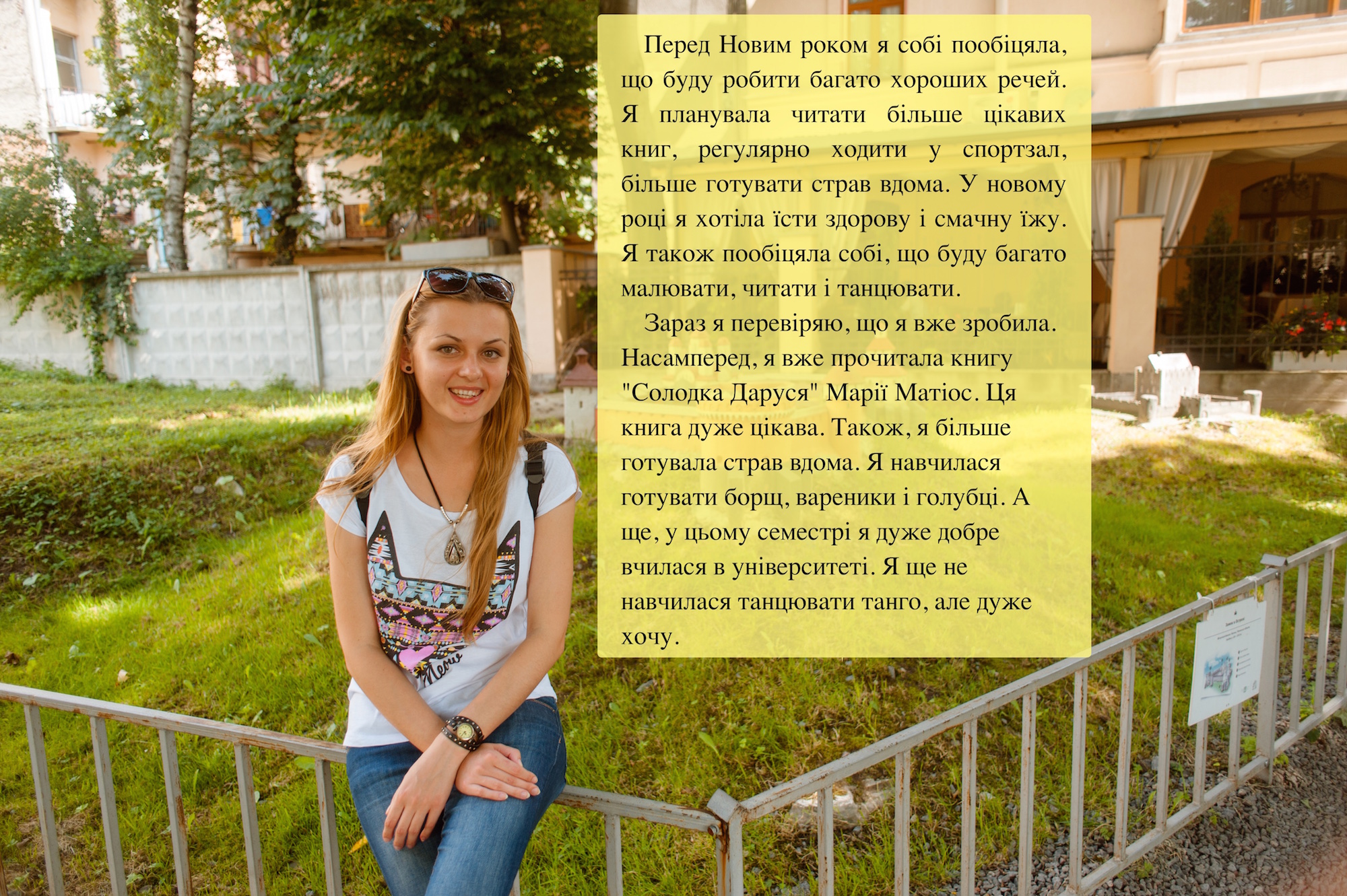СТАНЦІЯ 15.4
Що ми робили на канікулах?
In this station, you will learn:
- perfective verbs in the past tense
- adverbs used with perfectives verbs
- imperfective and perfective verbs
- to use imperfective and perfective verbs in specific contexts
- to talk about New Year’s resolutions and results
In the next slides, you will review and practice imperfective and perfective verbs.
Imperfective vs Perfective
| Imperfective (process) | Perfective (result) |
|---|---|
| no prefix | with prefix |
| готувати | приготувати |
| читати | прочитати |
| вчити | вивчити |
| писати | написати |
| ходити | сходити |
| with suffix | no suffix |
| давати | дати |
| longer suffix | shorter suffix |
| купувати | купити |
| suffix -а-/-я- | suffix -и-/-і- |
| прилітати | прилетіти |
| suffix -a- | suffix -ну- |
| стрибати | стрибнути |
Most Ukrainian verbs come in pairs of imperfective and perfective variants: писати—написати, готувати—приготувати.
Perfective verbs are used to describe a single event in its entirety, stressing the result of a verbal action.
Imperfective verbs are used to describe processes, ongoing events, and habitual actions or events.
In the next slides, you will use perfective to describe activities in the past.
The following adverbs require the perfective:
зненацька “suddenly”
несподівано “unexpectedly”
в одну мить “in one moment”
миттєво “momentarily”
зразу ж “right away”, ‘immediately”
Read the text about Oksana’s New Year resolutions. Has she accomplished all of them?

Read the text again and be ready to answer more questions.

What New Year resolutions did you accomplish last year?
Share your answers on the forum.
(*student sign-in required)
In the next slides, you will practice using imperfective and perfective verbs to describe past activities.
